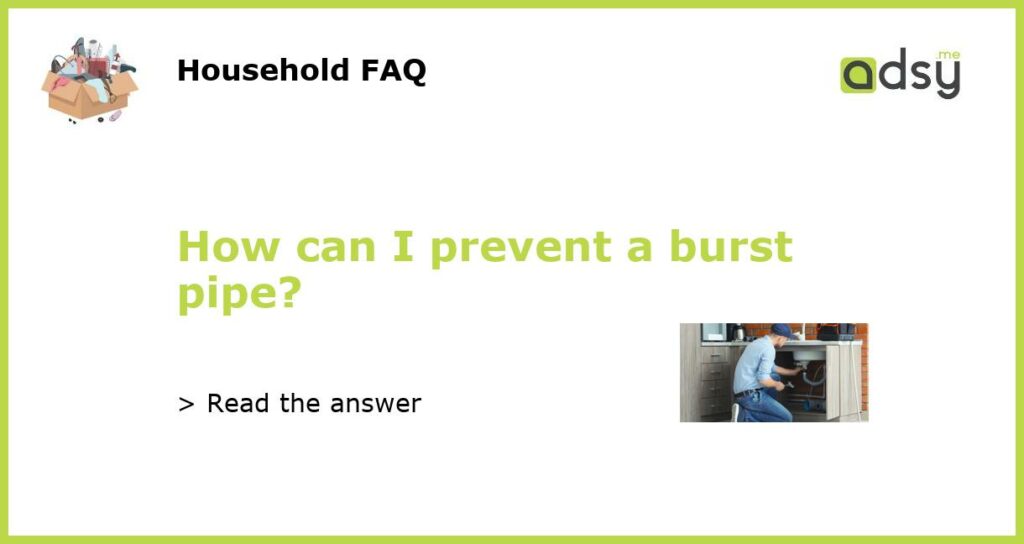Understanding the Causes of Burst Pipes
Burst pipes can cause significant damage to your property and lead to expensive repairs. Understanding the causes of burst pipes can help you take preventive measures to avoid this situation. One of the common causes of burst pipes is freezing temperatures. When water freezes, it expands and puts pressure on the pipes, leading to cracks or bursts. Other causes include faulty plumbing materials, high water pressure, tree root intrusion, and corrosion.
Insulate Your Pipes
Insulating your pipes is one of the most effective measures to prevent a burst pipe. Insulation helps to protect your pipes from freezing during extremely cold weather. There are several types of pipe insulation available in the market, such as foam sleeves, fiberglass, or heat tape. Make sure to insulate both hot and cold water pipes, including those in unheated areas like attics, basements, and crawl spaces.
Maintain the Right Temperature
Keeping your home heated, even when you’re away, can prevent pipes from freezing. Make sure to set the thermostat to a consistent temperature, especially during extremely cold weather. Aim to keep your home above 55 degrees Fahrenheit (12 degrees Celsius). This will help to maintain a warm environment that prevents the water inside the pipes from freezing.
Monitor Water Pressure
High water pressure can put stress on your pipes and increase the risk of bursts. Installing a pressure regulator can help control the water pressure and prevent any excessive strain on your pipes. You can also monitor your water pressure regularly using a pressure gauge. If you notice consistently high pressure, it’s essential to take action to reduce it to a safe level.
Regular Plumbing Maintenance
Maintaining your plumbing system regularly can go a long way in preventing burst pipes. Hire a professional plumber to conduct routine inspections and identify any potential issues before they escalate. They can check for signs of corrosion, leaks, or weakened areas in the pipes. Additionally, a plumber can perform maintenance tasks such as clearing clogs, repairing or replacing faulty plumbing fittings, and ensuring proper drainage.

